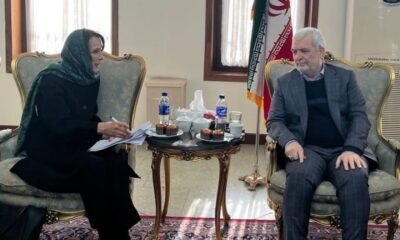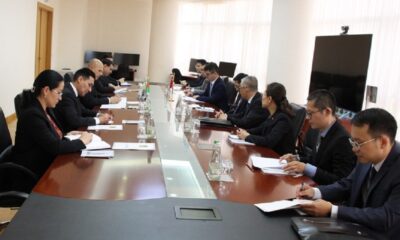Business
Pakistan’s Chaman border, closed for days due to fear of Afghans influx
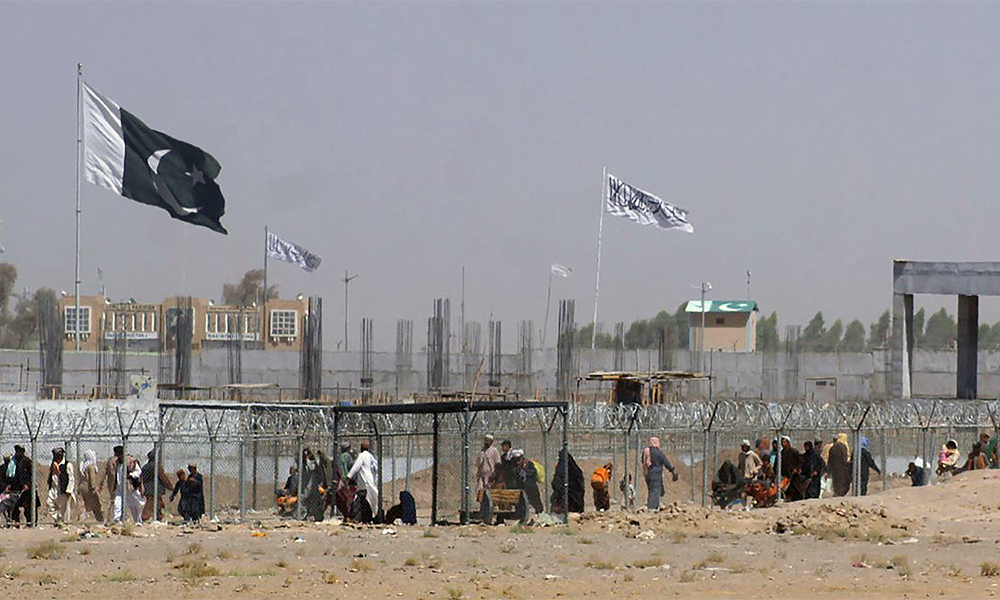
A day after protesters took to the streets of Chaman in Pakistan to demand the re-opening of the border crossing into Afghanistan, scores were seen waiting by the border road on Saturday.
Hundreds of people are stranded on both sides of the Chaman border crossing that has been closed for almost two weeks now, Reuters reported.
"This border has been closed for the last 13 days. We have been sitting here for the past 13 days for it to open. We come here at 8:00 in the morning, but by 10:00 we go back, because they (officials) are saying it could not open for months. Whatever money we had earned, we have spent all of it here," said Sami Ullah, a laborer from Baghlan province who had gone to Karachi for work.
Pakistani officials have said the border has been temporarily closed apparently due to the fear of an influx of Afghans who want to leave their homeland after the Islamic Emirate of Afghanistan (IEA) seized power in August.
Chaman border crossing , the second-largest commercial border point with Afghanistan after the Torkham commercial town in Khyber Pakhtunkhwa, links with Spin Boldak in the Afghan province of Kandahar, and is used by thousands of labourers, as well as traders, from both countries on a regular basis.
On Friday, thousands of traders took to the streets of Chaman, some on horseback, demanding that the border be opened, Reuters reported.
According to reports, thousands of Afghans have been gathering near the border in their efforts to sneak into Pakistan which has already announced that it was not in a position to accept more refugees.
Already around three million Afghan refugees are already living in Pakistan, some for more than three decades, since the invasion of their country by the Russians in 1979.
Pakistan officials say they fear around a million more would enter the country if border regulations are relaxed.
Business
Mullah Baradar inaugurates a blanket factory in Kabul
About 930 million Afghanis have been invested in the factory and it currently has the capacity to produce 1000 blankets per day.
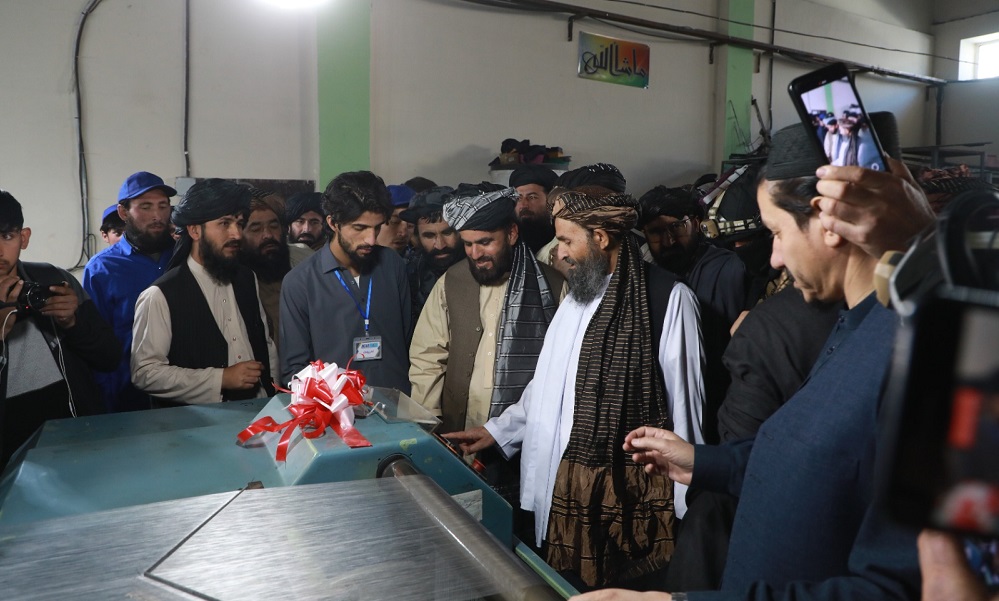
Mullah Abdul Ghani Baradar, the economic deputy prime minister, on Sunday inaugurated a blanket factory in Pul-e-Charkhi industrial area in Kabul city.
Speaking at the inauguration ceremony, Baradar said that with the provision of overall security in the country and the reduction of corruption, a favorable environment for medium and small investments has been created.
He added that the Islamic Emirate continues to support domestic industries by implementing effective import substitution policies, which plays an important role in strengthening the country's national economy.
Baradar stated that in order to support domestic industries, heavy-duty machines worth 100 million afghanis ($1.4 million) were purchased for the newly established blanket factory based on the Islamic Murabaha Islamic financing structure.
Murabaha is a sales contract where the buyer and seller agree on the markup or "cost-plus" price for the item being sold.
Baradar also mentioned that the Islamic Emirate seeks to reduce dependence on foreign imports by increasing the level of investment.
He called businessmen and investors to invest inside Afghanistan for the economic growth of the country.
According to Baradar’s office, the newly established blanket factory uses domestically sourced raw materials including wool and cotton, which will help increase job opportunities in addition to strengthening the livestock and agriculture sector.
About 930 million afghanis has been invested in the factory and it currently has the capacity to produce 1,000 blankets per day.
The factory has employed about 900 people.
Business
Trade volume between Kabul-Tehran has reached over $1.8 billion: MoIC
Afghanistan News: Iranian officials also stated that since the beginning of this year, the export of non-oil goods to Afghanistan has increased to $1.3 billion
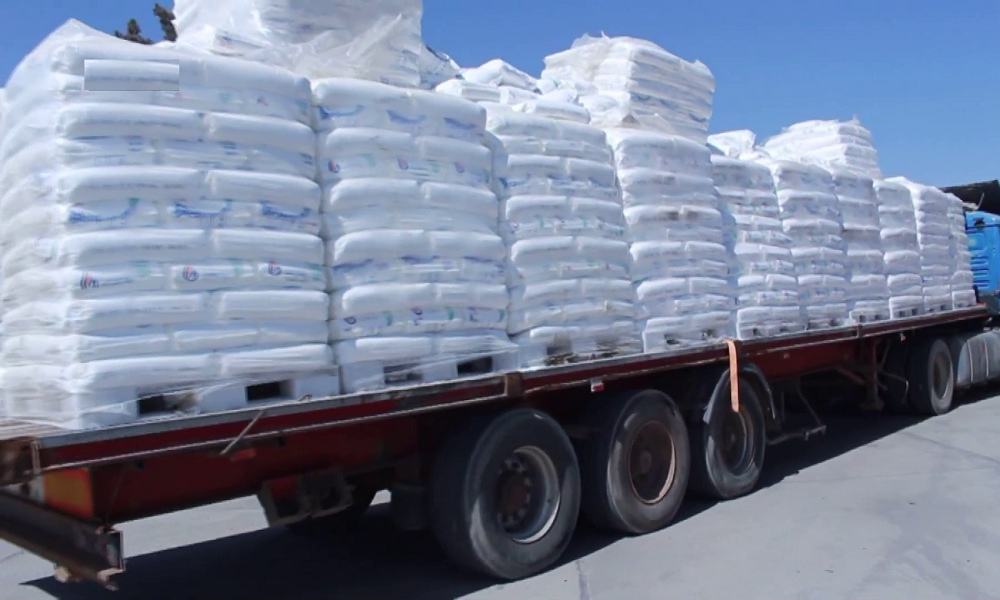
Ministry of Industry and Commerce (MoIC) says the trade volume between Afghanistan and Iran has reached more than $1.8 billion over the past seven months of 1403 [solar year].
The ministry's spokesman Abdulsalam Jawad Akhundzada said these trades include oil and non-oil goods.
According to Jawad Akhundzada, trade and transit with Iran is expanding.
“Afghanistan's trade with Iran during the seven months of 1403 was worth $1 billion 827 million dollars, of which 30 million dollars were exports and $1 billion 797 million dollars were imports,” said Akhundzada.
“Most of the major export goods are mineral stones, raisins, all kinds of soft drinks and sesame seeds, and the main import items are diesel fuel, petrol, raw materials for manufacturing, liquid gas and cement,” he added.
Meanwhile, Iranian officials also stated that since the beginning of this year, the export of non-oil goods to Afghanistan has increased to 1.3 billion dollars.
Tehran Times newspaper quoted the Iranian customs officials and reported that Afghanistan was Iran's fifth largest importer of non-oil products in the last seven months.
Business
Afghanistan-India trade volume totals $650 million so far this year
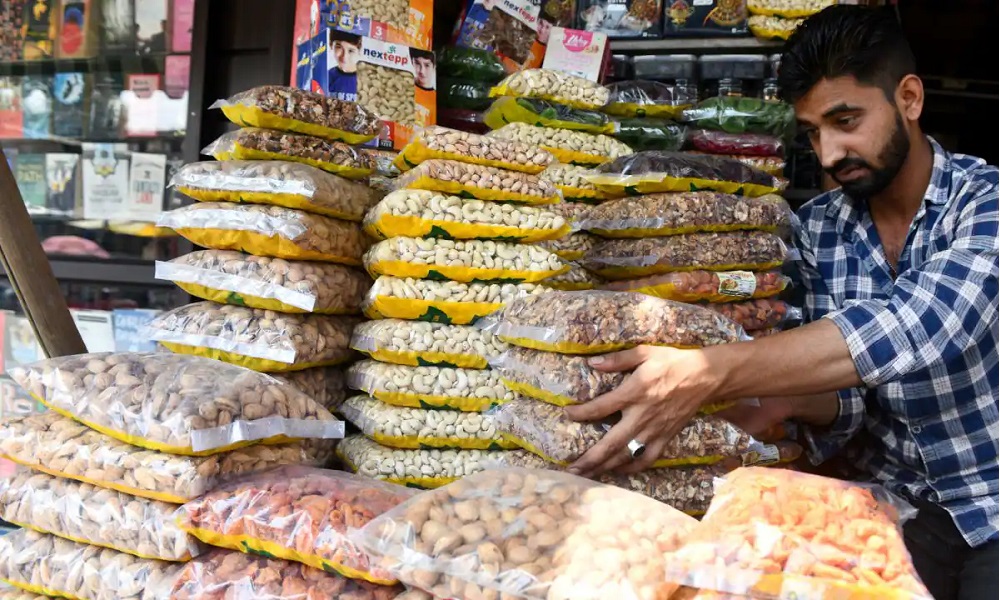
Trade between Afghanistan and India totals $650 million in the first 10 months of this year, the Islamic Emirate’s Ministry of Industry and Commerce announced this weekend.
In a post on X on Saturday, the ministry’s spokesman Abdulsalam Jawad Akhundzada said $477 million in exports and $203 million in imports were recorded this year.
He said Afghanistan’s main exports to India included dried figs, raisins, saffron, green cumin, and almonds.
According to Akhundzada, the main items imported from India over the past 10 months were sugar, raw materials for industrial factories, new clothing, and roasted chickpeas.
Just last week, JP Singh, Indian foreign ministry’s joint secretary for the Pakistan-Afghanistan-Iran division, visited Kabul and met with Acting Foreign Minister Amir Khan Muttaqi.
The two sides discussed political and economic relations between Afghanistan and India, and people's movements, the Afghan foreign ministry said in a statement.
Muttaqi expressed hope that relations between India and Afghanistan would expand in various fields. He stressed that to develop trade relations, Indian visa facilities should be increased for Afghan citizens, especially businesspersons.
According to the statement, JP Singh said that relations with Afghanistan are important for India and have an ancient history.
The Indian diplomat said that along with humanitarian aid to Afghans, India has also started development assistance to Afghanistan and is engaged in technical discussions with relevant Afghan institutions.
JP Singh stressed that in the near future, negotiations will be held between technical delegations of regional countries including Afghanistan and India on the Chabahar port.
He also promised to increase Indian visa facilities for Afghans.
-

 Sport4 days ago
Sport4 days agoAbu Dhabi’s thrilling T10 tournament just days away
-

 World5 days ago
World5 days agoBiden allows Ukraine to use US arms to strike inside Russia
-

 Sport4 days ago
Sport4 days agoAfghanistan beat UAE by 169 runs in U19 tri-series
-

 Latest News3 days ago
Latest News3 days agoTajikistan trumps Afghanistan 3-1 in football friendly
-
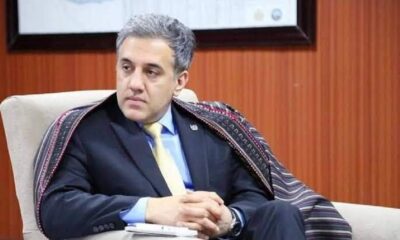
 Latest News4 days ago
Latest News4 days agoTwo Afghan diplomats posted to Germany under former government resign
-

 World4 days ago
World4 days agoLebanon, Hezbollah agree to US proposal for ceasefire with Israel, Lebanese official says
-
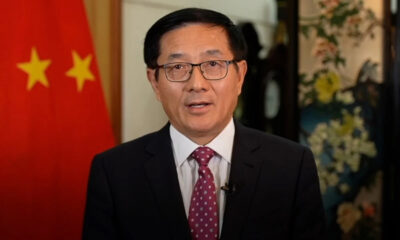
 Latest News4 days ago
Latest News4 days agoChina’s envoy says Beijing never interferes in Afghanistan’s internal affairs
-

 Latest News3 days ago
Latest News3 days agoEU marks International Children’s Day, says it supports Afghan children


